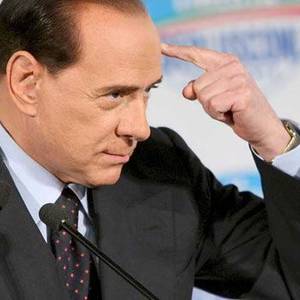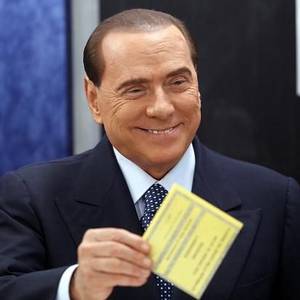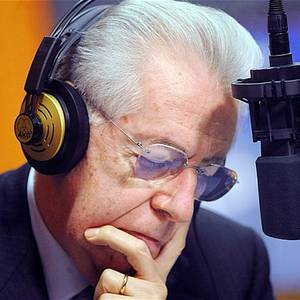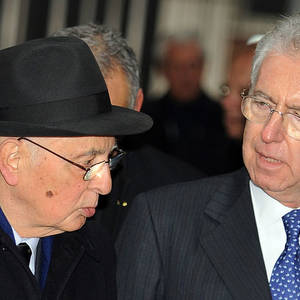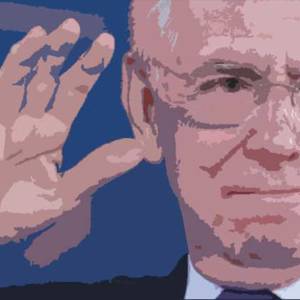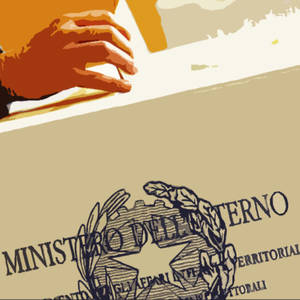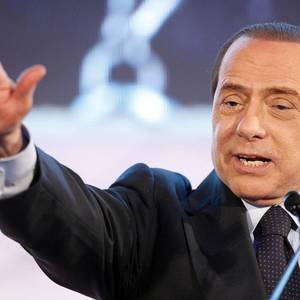Right and left in Italy agree on the gravity of the problem. "The house is on fire," thundered Angelino Alfano, titular secretary of the rightist Freedom Party (PdL). "Italy is starting to be frightened - yes, frightened," intoned the moderate leftist professor Ernesto Galli della Loggia, writing in Corriere della Sera. Both lament the politicians' failure to move toward formation of a new government. But there agreement ends, and the impasse over what to do to avoid a dangerous power vacuum continues. Fighting to gain time as the end of his mandate approaches, President Giorgio Napolitano has appointed a 10-man committee of "sages" to try to excogitate points of convergence on reforms.
You chose: mario monti
-
-
Workaday Milan was thrown into a small tizzy Wednesday morning when a hundred or so mostly middle-aged men and women blocked the sidewalk in front of the city courthouse and began to sing the Italian national anthem, "Fratelli d'Italia." All MPs and senators of former Premier Silvio Berlusconi's Freedom party (PdL), they were protesting what they consider the magistrates' persecution of their maximum leader. This new clash typifies the problems the country is addressing in its gravest political crisis in over a half century.
-
New York City and Italy have a great deal in common, starting and ending with self-destructive electorates; voters who are intent on putting into office people who, in one way or another, hold them in contempt. In both democracies, The People are generally too ignorant and self-absorbed to notice that the pain they feel is self-inflicted. How does this happen?
-
In a globalized world, the gigantic wave laps on distant shores, and never have Italian voters generated so much outside interest as during the two days of national general elections Feb. 24-25. For their part, Italian commentators have borrowed the phrase "Tsunami Tour", as actor-politician Beppe Grillo dubbed his campaign, as a larger metaphor for the stunning results.
-
Optimism about Italy's future, despite impending elections and a lingering debt crisis were expressed during the inaugural Italy-US summit held on February 11th, 2013.
-
The sober economist, professor and university president Mario Monti had been caretaker premier for just thirteen months when he jumped into the political arena this month. For better or worse, and for the first time in his life, Monti suddenly finds himself in the no-holds-barred combat that has typified Italian politics for decades.
-
The four possible scenarios for the Italian Premier
-
Italy's election campaign has begun with a jolt. No sooner did Silvio Berlusconi throw his hat into the ring or, as he put it, entered the playing field ("sceso in campo") for the sixth time in twenty years, than Premier Mario Monti bowed out.
-
In Italy, pressures are mounting for earlier elections because of corruption scandals that have rocked the governments of Italy's two most important regions: Lazio and Lombardy. Both regional governments have been brought down by shock waves of financial misdeeds, which have forced their governors to resign.
-
Berlusconi, who has dominated Italian politics for over seventeen years, is not leaving the political scene just yet. What happened?































